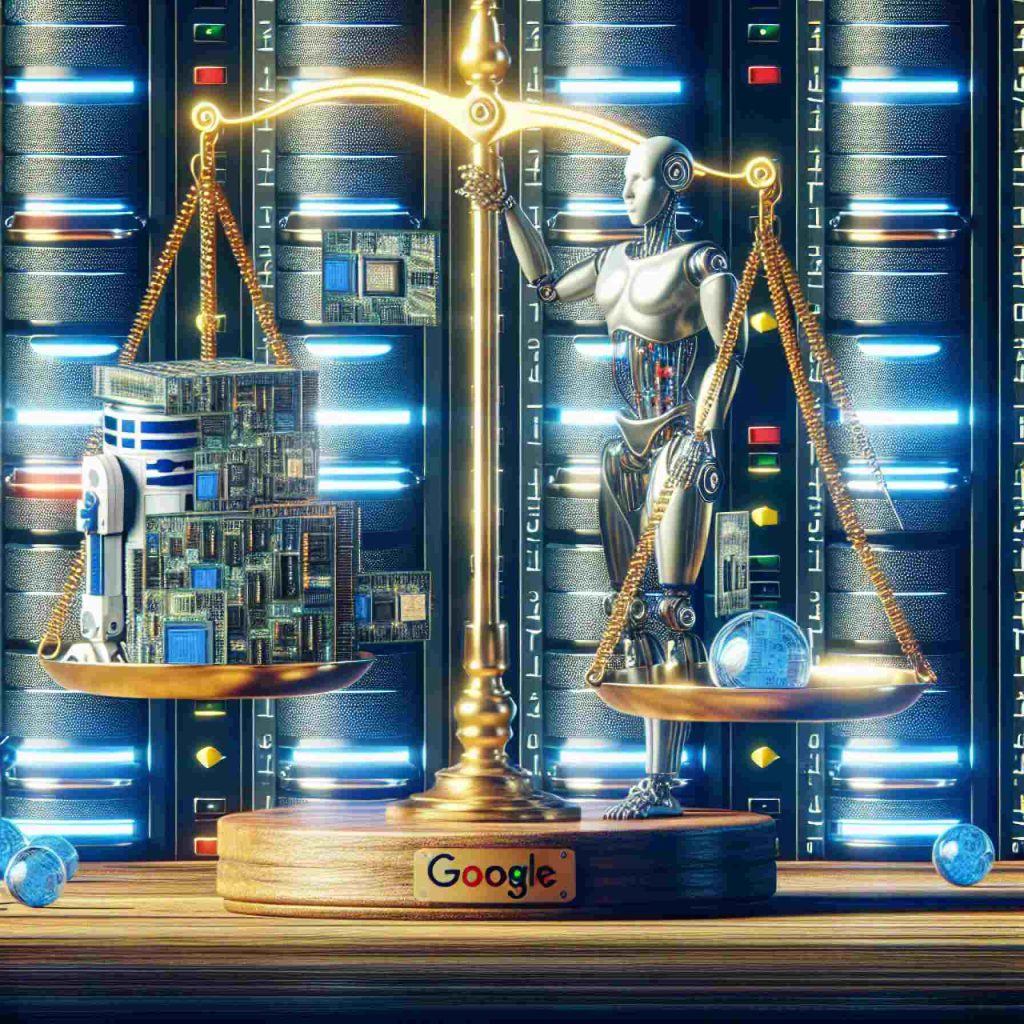
- Conversational AI platforms such as Grok and ChatGPT are challenging Google’s dominance in search by providing dynamic, engaging alternatives.
- Grok’s use of real-time conversations and ad-free responses offers users quick access to current trends and news, gaining significant user engagement and growth since its launch.
- AI chatbots are projected to handle nearly a third of all search queries by 2026, with tools like Chrome extensions enhancing accessibility and integration.
- Users engaging with these AI platforms report higher satisfaction, particularly when planning complex tasks or seeking comprehensive interactions, as opposed to traditional link-heavy searches.
- Although Google integrates AI features within its search functions, its distribution via Android presents a significant challenge for competitors seeking to overtake its market share.
- Concerns about the accuracy and reliability of AI-driven platforms persist, highlighting ongoing debates about their trustworthiness in handling nuanced topics.
- The rise of conversational AI is reshaping global search habits, influencing how users access and consume information.
A quiet yet powerful upheaval is changing the digital realm as conversational AI platforms such as Grok and ChatGPT shake Google’s long-standing search dominance. These pioneering technologies, driven by groundbreaking advancements, provide users with fresh, dynamic, and engaging alternatives to their information-seeking habits.
Grok’s arrival capitalizes on its unique feature to tap into real-time conversations on X (previously known as Twitter), bypassing Google’s sluggish indexing methods. This agility grants Grok a distinct advantage when catering to those hungry for the freshest news and trends. Its strategy of swift, ad-free answers strikes a chord with users drowning in a sea of links and advertisements.
The response? A staggering uptick in user engagement. February 2025 saw the launch of Grok 3, putting advanced features like DeepSearch at users’ fingertips. Swiftly, it experienced a tenfold increase in mobile downloads and soared from a modest 189,000 daily users to over 900,000. Although a fraction of Google’s estimated 2 billion monthly users, these figures spotlight a formidable shift.
The story isn’t Grok’s alone. Industry reports indicate that AI chatbots, including ChatGPT and Perplexity AI, are steadily gaining favor, with experts projecting AI assistants to handle nearly a third of search queries by 2026. The introduction of tools like the “Ask Grok!” Chrome extension further blurs the lines between convenience and innovation, embedding these AI platforms into everyday browsing ease.
The allure of conversational AI lies in its ability to engage users in meaningful dialogue. Studies reveal that users planning travel or exploring complex topics with these platforms manifest higher satisfaction rates compared to Google’s traditional, link-heavy interface. For those who have embraced this change, it’s not merely about finding information—it’s about interaction and comprehensiveness.
Meanwhile, Google isn’t readily relinquishing its throne. The company is weaving AI-rich elements into its search operations, albeit with cautious optimism. While Google’s sprawling distribution via Android posits a formidable barrier to overtaking, the essence of the battle may well pivot on accessibility rather than innovation alone.
Critics, however, highlight chinks in the AI armor. Despite Grok’s ability to capture the pulse of trending topics, concerns about accuracy on nuanced subjects persist. Issues surrounding “hallucinations” and unreliable sourcing continue to fuel debates about their trustworthiness. Nonetheless, the steady migration toward AI-driven interfaces reflects a deeper, underlying change in user expectations and habits.
The landscape of digital information is undoubtedly evolving. The stake lines between tech giants like Google and emergent AI upstarts signal a transformative era in global search habits. Whether these conversational challengers will dethrone an industry titan remains unseen. But one thing is clear: the mere rise of these alternatives is shaping how we perceive, consume, and interact with information in the modern age.
The Rise of Conversational AI: How Grok and Similar Platforms are Challenging Google’s Search Dominance
The Digital Shift: Conversational AI Platforms
Conversational AI platforms such as Grok and ChatGPT are redefining how we interact with digital content, providing users a refreshing pivot from traditional search engines like Google. Let’s delve deeper into this shift, the benefits it brings, potential drawbacks, and what this means for the future of information retrieval.
Real-World Use Cases and Benefits
1. Instantaneous Information Access: Grok taps into live conversations on platforms like X (formerly Twitter). This enables real-time data retrieval, bypassing slower indexing processes, allowing users to access the most current news and trends.
2. Enhanced User Engagement: The debut of Grok 3 with advanced features like DeepSearch in 2025 saw a significant impact, with daily user numbers skyrocketing from 189,000 to over 900,000. This clearly indicates user preference for conversational and dynamic interactions compared to static search results.
3. Convenience: Tools such as the “Ask Grok!” Chrome extension are bridging AI solutions into daily internet use, blurring the line between web browsing and AI assistance.
Industry Trends and Market Forecast
Experts predict that by 2026, AI assistants could handle up to one-third of all search queries. This trend signals a massive shift in how people prefer obtaining information, emphasizing the demand for interactive and comprehensive search experiences.
Limitations and Challenges
1. Accuracy Concerns: Despite Grok’s efficiency, issues such as information “hallucinations” or errors in providing correct data persist. Users and critics express concerns about the reliability of such platforms with nuanced subject matter (e.g., legal, medical).
2. Trust and Source Reliability: The challenge remains for AI platforms to validate sources and present information users can trust, competing with Google’s long-established credibility.
3. Dependency on Data Sources: Grok heavily relies on platforms like X for up-to-the-minute information. This dependency could become a limiting factor if access to these data streams is restricted or if platforms change their data policies.
Comparison with Google and Future Insights
While Google Search remains a giant due to its extensive distribution and established user base through Android, it faces a stiff challenge. Google integrates AI features progressively to keep up with changing user habits and competitors’ innovations.
Google’s sprawling reach ensures a robust presence but remains cautious in its implementation of AI to avoid impacting its traditional search reliability. This situation presents an interesting dichotomy: innovation versus reliability.
Actionable Recommendations
– Explore New Platforms: Users seeking the latest news and trends in a more interactive format should explore platforms like Grok and ChatGPT.
– Evaluate Source Reliability: While AI platforms offer convenience, users must verify information against credible sources.
– Stay Updated: Keeping abreast of developments in conversational AI could offer a competitive edge in both personal and professional contexts.
Conclusion
As conversational AI continues to rise, the digital landscape is poised for a transformative change. While challenges persist, the benefits and enhanced user experiences offered by platforms like Grok are undeniable. Users now have the opportunity to shift their information-consumption habits, further pushing the boundaries of how we interact with digital information.
For more insights into the world’s evolving digital trends, consider visiting platforms like OpenAI for updates and research in AI technology advancement.



